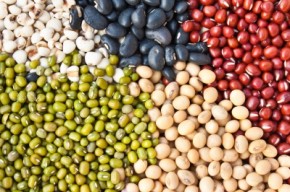Legumes for Inflammation
For nearly any of you who have spent much time with me, you would have heard me bang on about how great legumes are, especially legumes for inflammation, so I figured it was time that I wrote a post about it! This is the first in a series of posts about anti-inflammatory foods.
Legumes are one of the best things you can include in your diet if you suffer from inflammatory arthritis, such as rheumatoid arthritis. Why? Research shows that inclusion of ½ cup of peas, beans or lentils 4 times per week can significantly reduce your inflammatory biomarkers, such as CRP and TNF-alpha.
For those of you who (also) need to reduce your weight, again, legumes are the Knight in Shining Armour, being low in energy and high in fibre, they are a fantastic low kilojoule option that promotes satiety, and results in weightloss.
Legumes also act as a prebiotic. Most of you have probably heard of probiotics (for those of you who haven’t, they are the healthy bacteria found in your gut). Prebiotics are the food for the probiotics. Some individuals find wind and bloating an issue when they consume these, however in small quantities, most people can handle them. Further more, chronic consumers find less issue than those who eat them irregularly.
Legumes contain plant protein, which is much more easily digested (and less inflammatory) than animal protein.
I have had a couple of people speaking to me about phytates and lectins over recent months, usually followers of the paleo style of eating. Phytates bind to the micronutrients found in many legumes, and this is very true, the nutrients in question being iron and zinc. However through normal cooking processes, this becomes less of an issue, and even less so again when combined with a source of vitamin C (such as capsicum, orange, lemon), as this vitamin assists the absorption of iron in particular when coming from these plant sources. Furthermore, research indicates that these phytochemicals may provide therapeutic benefits in relation to treatment or prevention of disease, including the aforementioned anti-inflammatory effects. Lectins were previously thought of as an ‘anti-nutrient’, however current data indicates they may actually assist with conditions such as obesity and hypertension.
Regular inclusion of legumes, such as peas, beans and lentils is an essential for people with an inflammatory condition (whether it be rheumatoid arthritis or obesity), but also an essential for those who want to maintain and promote good overall health.
I would love to hear about how you include them!
Chloe McLeod is a dietitian at BJC Health.
This blog focuses on diet & nutrition generally and diet & nutrition in relation to the treatment of arthritis and arthritis-related diseases. Contact us if you'd like our help in managing diet-related health issues.

